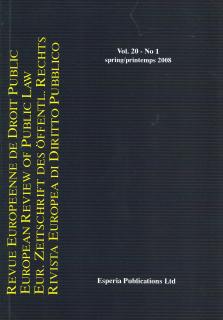
The Resources of European Security - Developing the EU Treaty Bases for Police Cooperation and Judicial Cooperation in Criminal Matters
Clemens Ladenburger
Dr. iur., LLM (Chicago). Member of the Legal Service of the European Commission
This report traces the genesis, and analyses the structure, of the new provisions now included in the Treaty of Lisbon on police cooperation and judicial cooperation in criminal matters. They are to be understood against the backdrop of institutional shortcomings of the present framework set out in the third pillar of the European Union: a lack of efficiency and effectiveness, complexity, and problems of legitimacy. Thanks to the dynamics that developed in the European Convention in 2002-2003, these problems were addressed in the European Constitution of 2004, which foresaw a de facto “communitarisation” of the third pillar. This result is preserved in the Treaty of Lisbon. The report explains the main factors that made it possible to achieve this result: some special institutional arrangements, a thorough revision of the Union’s competencies, and extended opt-out/opt-in regimes. Finally, the report looks at the radically changed Treaty foundations of Europol and Eurojust that, together with the possibility of creating a European Public Prosecutor’s Office, offer further institutional resources for European security.





















